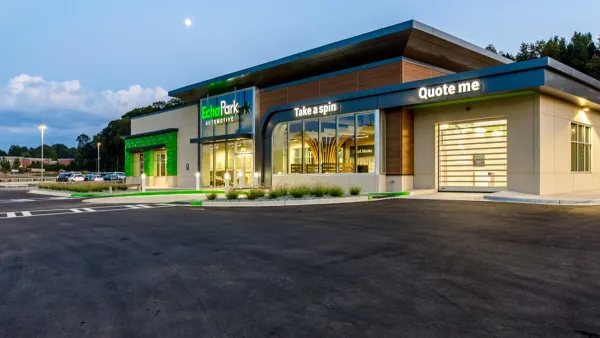Editor's note: This story is part of the WardsAuto digital archive, which may include content that was first published in print, or in different web layouts.
LAS VEGAS – Determined dealership finance and insurance managers tell how they keep their wits, even when a string of customers says “no” to every product and service presented.
A panel of award-winning performers discusses that and other aspects of their job at the 2012 F&I Conference and Expo here.
“If you just blanked out on six straight deals, how do you handle it?” asks moderator Marv Eleazer, himself an F&I manager in Georgia.
“I don’t change my process or my personality,” says Dina Wilson of Timbrook Automotive, a dealership in Cumberland, MD. She won this year’s “F&Idol” award, one of five given out at the annual conference.
Her positive outlook: Expect better results next time. “The only thing that changes in my office is the customer. You can try too hard sometimes.”
If Wilson is on a losing streak, “I’ll walk around the building and get some fresh air.”
Chris Bell of Freehold Buick-GMC in Freehold, NJ, agrees. “A couple of deep breaths and it is on to the next deal,” he says. “You never know when the next one will be a winner. It’s like here in Las Vegas. You can have six bad ones and 11 good ones.”
Adds Jeremy Johnston of Suburban Ford in Sterling Heights, MI: “You’ve just got to clear your head. The next one is a new deal.”
Panelists tell of their different professional approaches, ranging from laid-back to analytical.
“I like a relaxed style,” Bell says. “I often bring my rescue greyhound to work. He sits in my office, and his presence helps put people at ease. With me, everything is sold, nothing jammed.”
Ray Borg of Suburban Toyota in Troy, MI, says he adjusts to whether a customer prefers a mostly auditory or visual sales presentation.
“You do it over and over, and eventually it doesn’t seem like selling anymore,” he says of his work. “You are just having a conversation. Make it easy as possible and find out what a customer needs.”
Borg deals with customers of assorted ethnicities. “I’ve learned to say ‘Thank you’ in 10 different languages. It’s a little thing, but it can make a difference. People appreciate it.”
Asking customers qualifying questions, such as how many miles they expect to drive annually, helps F&I managers customize their presentations of products, including extended-warranty and prepaid maintenance plans.
But panelists say they keep those interviews short, informal and typically outside the F&I office. They also rely on car salespeople for customer information.
“I meet customers before they come into my office, and I talk to the salesperson,” says Joe Lawrence of Metro Imports in Kalamazoo, MI. “I’m trying to build that relationship.”
Bell adds, “The more you can find out from the salesperson, the better.”
F&I managers and car salespeople alike need to know how F&I products work, Wilson says. That helps prevent the awkwardness of different staffers telling customers conflicting things, she says.
She takes pride in treating people the same regardless of their financial circumstances. She deals with many subprime customers.
“I treat credit-challenged people the same as anyone else because, to them, that car they’re buying is their personal transportation,” Wilson says. “It’s just as important to them as a customer with good credit. Bad things can happen to good people.”
Panelists discuss how to handle the common sales objection that occurs when a customer declines an extended-warranty agreement because someone else, often a parent, insists it isn’t needed.
“That is one of the classic objections,” Borg says. “With some parents, you almost need a separate contract that says, ‘If something goes wrong with your kid’s car, you agree to pay for fixing it.’”
Lawrence worked at a Saturn dealership before General Motors pulled the plug on that brand. During its run, Saturn stressed customer-centricity. That left a lasting impression on Lawrence.
“It helped me develop strong relationships with customers,” he says. “That really helps in F&I.”









